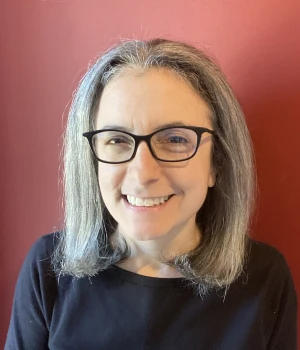
Lisa Silverman
- Professor, History
- Professor, Jewish Studies
Education
- PhD, Yale University
- MA, The Fletcher School of Law and Diplomacy, Tufts University
- BA, Yale University
Courses Taught
- History/Jewish 358 - The Jews of Modern Europe: History and Culture
- History 364 - History of the Holocaust
- History/Jewish 379 - Introduction to Jewish History
- History 398 - Challenges in Holocaust History and Representation
- History 950 - Holocaust History and Memory
- History 850 - Antisemitism after the Holocaust
Teaching Interests
- Jewish History from antiquity to the present
- Modern European Jewish history and culture
- Gender and Jewish history
- Holocaust history and representation
- Antisemitism
Research Interests
- Modern European Jewish history
- German and Austrian Jewish cultural history
- Photography and Film
- Gender and Jewish history
Biographical Sketch
Lisa Silverman received a BA in political science from Yale University, an MA in Law and Diplomacy from the Fletcher School of Law and Diplomacy at Tufts University, and a PhD in German Studies from Yale University. In 2022 she served as Michael Hauck Visiting Professor for Interdisciplinary Holocaust Research at the Fritz Bauer Institute for the History and Impact of the Holocaust at the Goethe-Universität in Frankfurt am Main. She specializes in modern German and Austrian Jewish cultural history, with a focus on gender, visual culture, and antisemitism. She is author of Becoming Austrians: Jews and Culture between the World Wars (Oxford, 2012) and co-author with Daniel H. Magilow of Holocaust Representations in History: an Introduction (Bloomsbury, 2015; 2nd ed. 2019). Her next book, The Postwar Antisemite: Culture and Complicity after the Holocaust, is forthcoming with Oxford University Press.